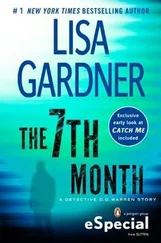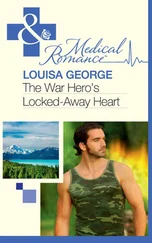Kathy Levine paused for a moment, gazing out somberly over the group of twenty search-and-rescue volunteers now gathered at Big Meadows Lodge. “It’s hot out, people. Yeah, no kidding, you’re thinking. But I mean it. In this kind of heat index, dehydration is a constant threat. The rule of thumb is that two quarts of water a day keeps dehydration away. Unfortunately, in these conditions your body can easily lose a quart of water per hour through your lungs and pores, so two quarts isn’t going to cut it. Frankly, each person should carry two gallons of water, but since that weight would be prohibitive, we’re requiring each rescue team to carry either water tablets or a water purification system. Then you can refill your water supply at the various streams you encounter along the way. Don’t drink untreated stream water . Sure, the water looks clear and pretty up here, but most of it is contaminated by Giardia lamblia -a parasite which is guaranteed to give you a bad case of the seven-day trots. Drink often, but drink smart.
“Now, assuming that you stay properly hydrated, don’t slip down a steep hillside, or stumble upon a sleeping bear, there are a few final things to keep in mind. For example, rattlesnakes. We have plenty. Every now and then, you’ll come to a clear meadow with a pile of rocks from an old landslide. Looks like a terrific place to sit down. Don’t. The snakes think so, too, and most of those rocks are their homes. Let’s not argue with them. Second, we have hornets. They like to build nests in old hollows in the ground or in rotten logs. If you leave them alone, they’ll leave you alone. If you step into a nest, however… might I recommend not running back to your partner. You’ll only drag him into the mess and one of you will need to be able to hike back for help. Finally, we have stinging nettles. If you haven’t ever seen one, they are about thigh-high with broad green leaves. If you boil them, they actually make a pretty good green to go with dinner. Walk into them, however, and welcome to nature’s version of fiberglass. The prickers get immediately under the skin and emit a poison that remains long after the thistles are gone. It takes a good thirty to sixty minutes for the inflammation to subside and by then, you’ll have renounced everything you once held dear.
“This park is beautiful. I’ve walked almost every inch of it in the last five years and I can’t think of a more beautiful spot on earth. But nature also commands respect. We need to be focused. We need to move fast. But in these conditions, I also need each and every one of you to always be using your head. Our goal is to find one person, not lose any more. Any questions?” Levine paused. There were none. “Good,” she said crisply. “Let’s move. We have only four and a half hours of daylight left.”
The group broke up, people finding their search partners and heading out of the lodge. Everyone had received their assignment, and most seemed to understand the drill. Mac and Kimberly were probably the biggest rookies of the bunch and Mac had done his fair share of search-and-rescue work by now. Kimberly, he could tell, was more uncomfortable. She had the gear, she had the fitness. But by her own admission, she’d never spent much time in the woods.
If what Kathy Levine had said was correct, this was going to be quite an adventure.
“What do you think she meant by the hornets?” Kimberly said now as they trudged out of the wonderfully air-conditioned lodge into the searing heat. “If the hornets build their nests in the ground and we’re walking on the ground, how are we supposed to avoid them?”
“Look where you step,” Mac said. He stopped, held up the map they’d been given, and worked on orienting it to their surroundings. They were officially Search Team D, assigned to search the three square miles of, logically enough, Search Area D.
“But if I’m looking at the ground, how am I supposed to look for a lost woman or broken branches or whatever?”
“It’s just like driving. You look ahead ten feet to know what’s coming, then gaze around all you want, then scope out the next ten feet. Look, glance, look, glance, look, glance. Okay, according to the map, we enter the trailhead there.”
“I thought we weren’t on a trail. Levine said we were in the ‘rough country’-whatever the hell that means.”
“We are,” Mac said patiently. “But the first quarter of a mile is on a trail. Then we veer off into the wild underbelly of the beast.”
“How will we know which way to go?”
“We chart and map usin’ compass points. It’ll be slow, but thorough.”
Kimberly barely nodded. She was gazing nervously at the dark forest before them, carpeted in nine shades of green. Mac saw beauty. Kimberly, however, obviously saw something worse.
“Tell me again how often you’ve done this,” she whispered.
“I assisted with two of the search operations in Georgia.”
“You said people got hurt.”
“Yep.”
“You said he sets up scenarios like this, just to torture us.”
“Yep.”
“He’s a real son of a bitch, isn’t he?”
“Oh, yeah.”
Kimberly nodded. She squared her shoulders, her chin coming up in that set he already knew so well. “All right,” she said stiffly. “We’re going to find this girl, we’re going to save the day, and then we’re going to walk out of this park so we can nail the bastard. Deal?”
“You are a woman after my own heart,” Mac said soberly.
They pushed ahead into the thick, dark woods.
Footing was easy on the dirt trail. Steep, but manageable, with rocky ledges and worn tree roots forming a natural cascade of stairs. Shady, with the dense canopy of trees blocking out the sun. The heat and humidity, however, were harder to escape. Mac was already short of breath, his lungs laboring as they headed down the path. Within minutes, his face was drenched in sweat, and he could feel moisture beading uncomfortably between his shoulder blades, where his backpack pressed against his shirt. The sun was bad, but the humidity was their true enemy. It turned the high mountain woods from a shady reprieve to a steaming jungle where each footstep required hard physical effort and four hours of intense hiking would be about three hours too much.
Both Mac and Kimberly had changed clothes for the operation. Kimberly now wore khaki shorts and a short-sleeved cotton T-shirt, the casual outfit of an amateur day hiker. More experienced, Mac had donned nylon shorts and a quick-drying nylon top. As he began to sweat, the synthetic material wicked the moisture away from his body, allowing him a small degree of comfort. Kimberly’s cotton T-shirt, on the other hand, was already plastered against her body. Soon, the shirt, as well as her shorts, would start to chafe her skin painfully. He wondered if she would complain, but already figured she wouldn’t.
“Do you think she’s still alive?” Kimberly asked tersely. Her breath also came out in short pants, but she was matching stride with stride. When called upon to perform, the lady didn’t disappoint.
“I read a study once of search-and-rescue operations,” Mac replied. “Of the fatalities, seventy-five percent died in the first forty-eight hours. Assuming this girl was abandoned yesterday, that gives us another twenty-four hours to find her.”
“What,” pant , pant , “generally kills” pant , pant , “lost people?”
“Hypothermia. Or on a day like this, heatstroke. Basically, it’s exposure that does a person in. Here’s a fact for you: Did you know that children under the age of six have the highest survival rate when lost in the woods?”
Kimberly shook her head.
“Kids are better at listening to their instincts,” Mac explained. “When they’re tired, they sleep. When they’re frightened, they seek shelter. Adults, on the other hand, are always convinced they can regain control. So rather than get out of the rain or the cold or the sun, they keep walking, determined that safety is just around the corner. It’s exactly the wrong thing to do. Your odds are much better if you remain calm and stay in one place. After all, the average person can last up to five days with no water and up to a month without food. Wear yourself out walking, however, and you’ll succumb to exposure, fall off a cliff, stumble into a bear’s den, etc., etc. Next thing you know, the lost hiker’s dead in forty-eight hours, when any old schmuck should be able to last a week.”
Читать дальше












